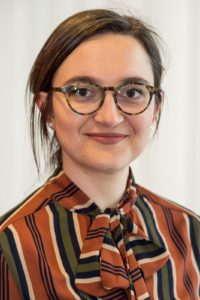Dr Muge Cevik to Deliver Plenary Session at CROI 2022

Dr Muge Cevik (MD MSc MRCP) will be giving a keynote lecture at the 29th Conference on Retroviruses and Opportunistic Infections (CROI 2022). Bringing together the most respected infectious disease healthcare professionals and scientists from around the globe to discuss human retroviruses and other relevant infections such as SARS-CoV-2, CROI is one of the world’s most prestigious congresses in this field.
This keynote talk will provide an overview of the global epidemiology of COVID-19, mainly focusing on disparities in transmission, severity, and outcomes. It will also summarise the challenging and often misinterpreted but consequential epidemiological aspects such as asymptomatic transmission, changes in the severity of disease and transmissibility of variants, and the role of children in transmission dynamics, focusing on better ways to evaluate these areas going forward. The COVID-19 pandemic, with its myriad uncertainties, well-publicised retractions, shifting recommendations and over 300 thousand publications, has underscored the importance of carefully synthesising and translating the vast amount of data into evidence-based and actionable insights.
Dr Cevik is a clinical academic in infectious diseases and medical virology based in the Division of Infections and Global Health Research in the School of Medicine. Her research interests focus on HIV, tuberculosis, viral hepatitis, emerging infections and tropical infections in LMICs. During COVID-19 pandemic, alongside working on the front lines of the response, she provides scientific input to the Chief Medical Officer for Scotland on COVID-19 and serves as a member of NERVTAG (New and Emerging Respiratory Virus Threats Advisory Group) – an expert committee of the UK Department of Health.
Dr Cevik critically appraised emerging data and provided evidence summaries of complex scientific arguments, including transmission and school openings. For example, in April she identified that evidence indicated transmission often occurred after sustained close contact and indoors, such as through family gatherings, or in poorly ventilated indoor environments. She also provided advice and consultancy to the World Health Organisation (WHO) on risk communication.
https://www.croiconference.org/preliminary-agenda/